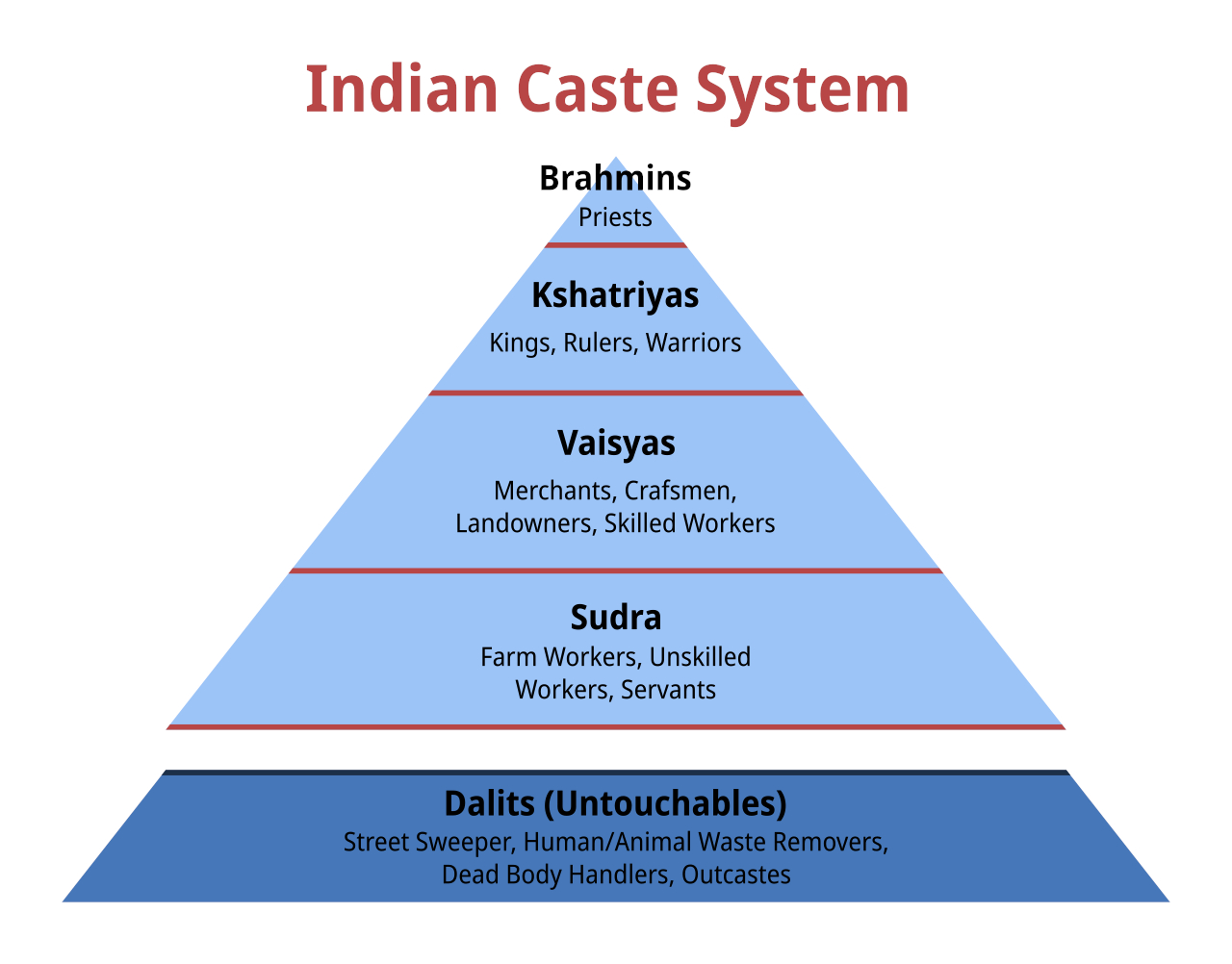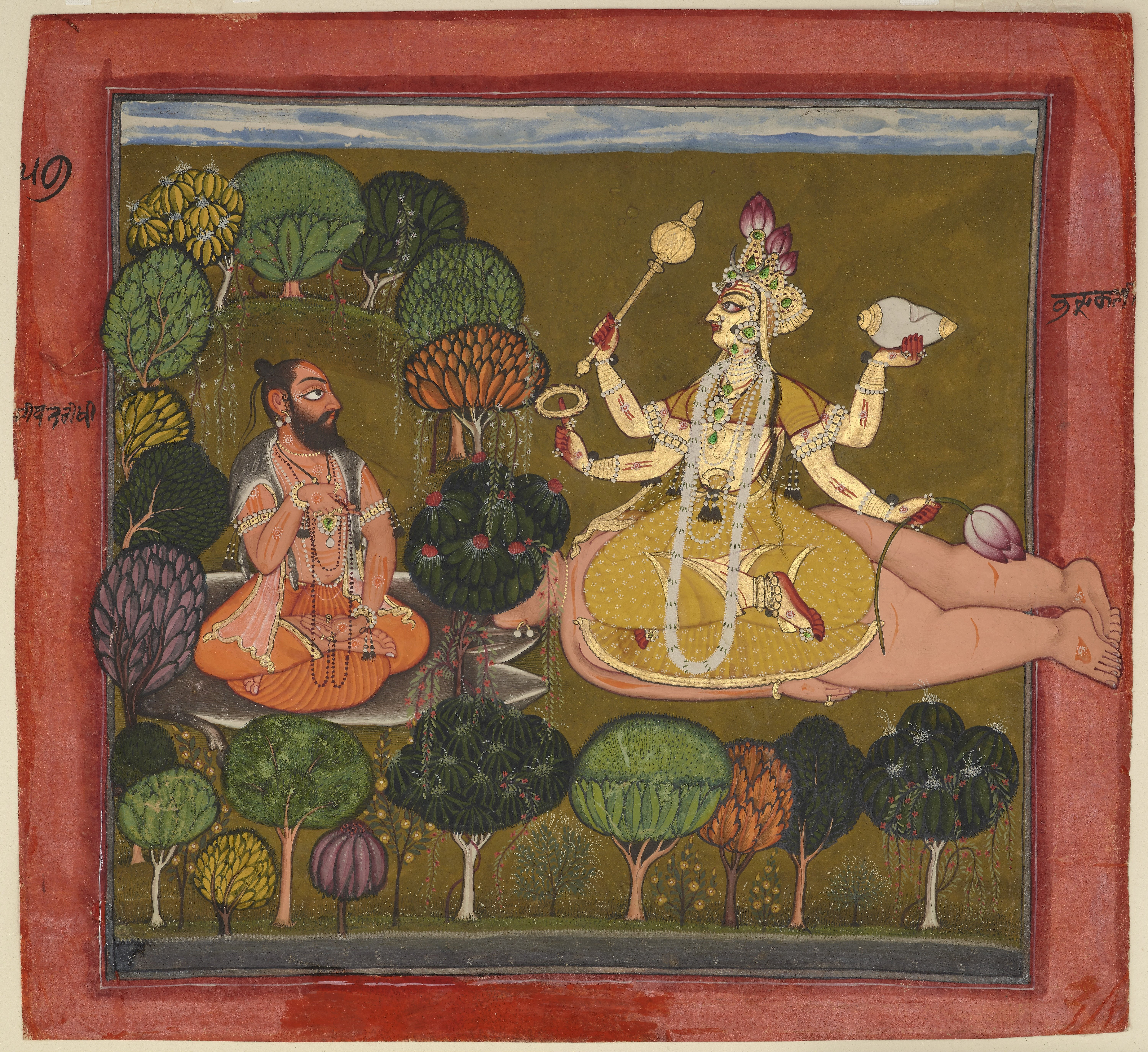|
Bhangi
Chuhra, also known as Bhanghi and Balmiki, is a Dalit caste in India and Pakistan. Populated regions include the Punjab region of India and Pakistan, as well as Uttar Pradesh in India, among other parts of the Indian subcontinent such as southern India. Their traditional occupation is sweeping, a "polluting" occupation that caused them to be considered untouchables in the caste system. Originally following the Balmiki sect of Hinduism, many Chuhras converted to Sikhism, Islam and Christianity during the colonial era in India. Today, Chuhras in Indian Punjab are largely followers of Sikhism. A minority continue to follow Hinduism, which incorporates elements of Sikhism in its practices, as well as Christianity. In Pakistani Punjab 90–95% of its Christian population are Dalit Christians of the Chuhra caste; other Chuhras practice Islam or continue to follow Hinduism. Etymology and history The word "Chuhra" is derived from the word " Shudra", one of the varnas in Indi ... [...More Info...] [...Related Items...] OR: [Wikipedia] [Google] [Baidu] |
Balmiki Sect
Balmikism or Valmikism is a Hindu sect that reveres the sage Valmiki, Srishtikarta (also known as Bala Shah or Lal Beg) as their ancestor as a patron saint. Followers believe that Valmiki was an avatar of God, and they consider his works, the ''Ramayana'' and the ''Yoga Vasistha'', as their holy scripture. Balmiki is often depicted as wearing red clothing and is thus known as Lal Bhekh (or Lal Beg). Ashram (Valmiki), Valmiki mandirs (temples) are open to all and the most important festival celebrated by Valmiki Hindus is Valmiki Jayanti, which marks the birthday of Valmiki. Many worshippers at Valmiki Hindu temples, especially those belonging to the Valmiki community, though adherents from other castes pray there too and patrons of Valmiki temples come from diverse castes. Demographics See also * Valmiki caste * Ardaas * Pargat Diwas References {{reflist Hindu denominations ... [...More Info...] [...Related Items...] OR: [Wikipedia] [Google] [Baidu] |
Manual Scavenging
Manual scavenging is a term used mainly in India for "manually cleaning, carrying, disposing of, or otherwise handling, human excreta in an insanitary latrine or in an open drain or sewer or in a septic tank or a pit". Manual scavengers usually use hand tools such as buckets, brooms and shovels. The workers have to move the excreta, using brooms and tin plates, into baskets, which they carry to disposal locations sometimes several kilometers away. The practice of employing human labour for cleaning of sewers and septic tanks is also prevalent in Bangladesh and Pakistan. These sanitation workers, called "manual scavengers", rarely have any personal protective equipment. The work is regarded as a dehumanizing practice. The occupation of sanitation work is intrinsically linked with caste in India. All kinds of cleaning are considered lowly and are assigned to people from the lowest rung of the social hierarchy. In the caste-based society, it is mainly the Dalits who work as sanitati ... [...More Info...] [...Related Items...] OR: [Wikipedia] [Google] [Baidu] |
Dalit
Dalit ( from meaning "broken/scattered") is a term used for untouchables and outcasts, who represented the lowest stratum of the castes in the Indian subcontinent. They are also called Harijans. Dalits were excluded from the fourfold varna of the caste hierarchy and were seen as forming a fifth varna, also known by the name of ''Panchama''. Several scholars have drawn parallels between Dalits and the '' Burakumin'' of Japan, the '' Baekjeong'' of Korea and the peasant class of the medieval European feudal system. Dalits predominantly follow Hinduism with significant populations following Buddhism, Sikhism, Christianity, and Islam. The constitution of India includes Dalits as one of the Scheduled Castes; this gives Dalits the right to protection, positive discrimination (known as reservation in India), and official development resources. Terminology The term ''Dalit'' is for those called the "untouchables" and others that were outside of the traditional Hindu caste ... [...More Info...] [...Related Items...] OR: [Wikipedia] [Google] [Baidu] |
Bindeshwar Pathak
Bindeshwar Pathak (2 April 1943 – 15 August 2023) was an Indian sociologist and social entrepreneur. He was the founder of Sulabh International, an India-based social service organisation promoting human rights, environmental sanitation, non-conventional sources of energy, waste management and social reforms through education. He was the Brand Ambassador for Swachh Rail Mission of Indian Railways, a complement to the broader Swachh Bharat Mission. His work is considered pioneering in social reform, especially in the field of sanitation and hygiene. He received various national and international awards for his work with this organisation. He was presented with the Lal Bahadur Shastri National Award for Excellence in Public Administration, Academics and Management for the year 2017. He was conferred the Padma Vibhushan, India's second-highest civilian award, posthumously in 2024 and the Padma Bhushan, India's third-highest civilian award, in 1991. His education Bindeshwar Pathak ... [...More Info...] [...Related Items...] OR: [Wikipedia] [Google] [Baidu] |
Islam
Islam is an Abrahamic religions, Abrahamic monotheistic religion based on the Quran, and the teachings of Muhammad. Adherents of Islam are called Muslims, who are estimated to number Islam by country, 2 billion worldwide and are the world's Major religious groups, second-largest religious population after Christians. Muslims believe that Islam is the complete and universal version of a Fitra, primordial faith that was revealed many times through earlier Prophets and messengers in Islam, prophets and messengers, including Adam in Islam, Adam, Noah in Islam, Noah, Abraham in Islam, Abraham, Moses in Islam, Moses, and Jesus in Islam, Jesus. Muslims consider the Quran to be the verbatim word of God in Islam, God and the unaltered, final revelation. Alongside the Quran, Muslims also believe in previous Islamic holy books, revelations, such as the Torah in Islam, Tawrat (the Torah), the Zabur (Psalms), and the Gospel in Islam, Injil (Gospel). They believe that Muhammad in Islam ... [...More Info...] [...Related Items...] OR: [Wikipedia] [Google] [Baidu] |
Akbar
Akbar (Jalal-ud-din Muhammad Akbar, – ), popularly known as Akbar the Great, was the third Mughal emperor, who reigned from 1556 to 1605. Akbar succeeded his father, Humayun, under a regent, Bairam Khan, who helped the young emperor expand and consolidate Mughal domains in the Indian subcontinent. He is generally considered one of the greatest emperors in Indian history and led a successful campaign to unify the various kingdoms of '' Hindūstān'' or India proper. Quote: "Akbar, The greatest Mughal emperor of India." Akbar gradually enlarged the Mughal Empire to include much of the Indian subcontinent through Mughal military, political, cultural, and economic dominance. To unify the vast Mughal state, Akbar established a centralised system of administration and adopted a policy of conciliating conquered rulers through marriage and diplomacy. To preserve peace and order in a religiously and culturally diverse empire, he adopted policies that won him the support of his no ... [...More Info...] [...Related Items...] OR: [Wikipedia] [Google] [Baidu] |
SAGE Publications
Sage Publishing, formerly SAGE Publications, is an American independent academic publishing company, founded in 1965 in New York City by Sara Miller McCune and now based in the Newbury Park neighborhood of Thousand Oaks, California. Sage Publishing has offices located across North America, Europe, and the Asia Pacific region. In North America, Sage Publishing has offices in Los Angeles, Washington DC, and Toronto. The European operations are headquartered in London, United Kingdom. In the Asia Pacific region, Sage Publishing has established offices in Melbourne, Australia, India and Singapore. It publishes more than 1,000 journals, more than 800 books a year, reference works and electronic products covering business, humanities, social sciences, science, technology and medicine. SAGE also owns and publishes under the imprints of Corwin Press (since 1990), CQ Press (since 2008), Learning Matters (since 2011), and Adam Matthew Digital (since 2012). History SAGE wa ... [...More Info...] [...Related Items...] OR: [Wikipedia] [Google] [Baidu] |
Mughal Empire
The Mughal Empire was an Early modern period, early modern empire in South Asia. At its peak, the empire stretched from the outer fringes of the Indus River Basin in the west, northern Afghanistan in the northwest, and Kashmir in the north, to the highlands of present-day Assam and Bangladesh in the east, and the uplands of the Deccan Plateau in South India.. Quote: "The realm so defined and governed was a vast territory of some , ranging from the frontier with Central Asia in northern Afghanistan to the northern uplands of the Deccan plateau, and from the Indus basin on the west to the Assamese highlands in the east." The Mughal Empire is conventionally said to have been founded in 1526 by Babur, a Tribal chief, chieftain from what is today Uzbekistan, who employed aid from the neighboring Safavid Iran, Safavid and Ottoman Empires Quote: "Babur then adroitly gave the Ottomans his promise not to attack them in return for their military aid, which he received in the form of the ... [...More Info...] [...Related Items...] OR: [Wikipedia] [Google] [Baidu] |
Patron Saint
A patron saint, patroness saint, patron hallow or heavenly protector is a saint who in Catholicism, Anglicanism, Eastern Orthodoxy or Oriental Orthodoxy is regarded as the heavenly advocate of a nation, place, craft, activity, class, clan, family, or person. The term may be applied to individuals to whom similar roles are ascribed in other religions. In Christianity Saints often become the patrons of places where they were born or had been active. However, there were cases in medieval Europe where a city which grew to prominence obtained for its cathedral the remains or some relics of a famous saint who had lived and was buried elsewhere, thus making them the city's patron saint – such a practice conferred considerable prestige on the city concerned. In Latin America and the Philippines, Spanish and Portuguese explorers often named a location for the saint on whose feast or commemoration day they first visited the place, with that saint naturally becoming the area's patron ... [...More Info...] [...Related Items...] OR: [Wikipedia] [Google] [Baidu] |
Ramayana
The ''Ramayana'' (; ), also known as ''Valmiki Ramayana'', as traditionally attributed to Valmiki, is a smriti text (also described as a Sanskrit literature, Sanskrit Indian epic poetry, epic) from ancient India, one of the two important epics of Hinduism known as the ''Itihasas'', the other being the ''Mahabharata''. The epic narrates the life of Rama, the seventh ''avatar'' of the Hindu deity Vishnu, who is a prince of Ayodhya (Ramayana), Ayodhya in the kingdom of Kosala. The epic follows Exile of Lord Rama, his fourteen-year exile to the forest urged by his father King Dasharatha, on the request of Rama's stepmother Kaikeyi; his travels across the forests in the Indian subcontinent with his wife Sita and brother Lakshmana; the kidnapping of Sita by Ravana, the king of Lanka, that resulted in bloodbath; and Rama's eventual return to Ayodhya (Ramayana), Ayodhya along with Sita to be crowned as a king amidst jubilation and celebration. Scholarly estimates for the earliest stage ... [...More Info...] [...Related Items...] OR: [Wikipedia] [Google] [Baidu] |
Brahmin
Brahmin (; ) is a ''Varna (Hinduism), varna'' (theoretical social classes) within Hindu society. The other three varnas are the ''Kshatriya'' (rulers and warriors), ''Vaishya'' (traders, merchants, and farmers), and ''Shudra'' (labourers). The traditional occupation of Brahmins is that of priesthood (purohit, pandit, or pujari) at Hindu temples or at socio-religious ceremonies, and the performing of rite of passage rituals, such as solemnising a wedding with hymns and prayers.James Lochtefeld (2002), Brahmin, The Illustrated Encyclopedia of Hinduism, Vol. 1: A–M, Rosen Publishing, , page 125 Traditionally, Brahmins are accorded the supreme ritual status of the four social classes, and they also served as spiritual teachers (guru or acharya). In practice, Indian texts suggest that some Brahmins historically also became agriculturalists, warriors, traders, and had also held other occupations in the Indian subcontinent.GS Ghurye (1969), Caste and Race in India, Popular Prakasha ... [...More Info...] [...Related Items...] OR: [Wikipedia] [Google] [Baidu] |
Varna (Hinduism)
Varna (, ), in the context of Hinduism, refers to a social class within a hierarchical traditional Hindu society. The ideology of varna is epitomized in texts like '' Manusmriti'', which describes and ranks four varnas, and prescribes their occupations, requirements and duties, or '' Dharma''. *Brahmins: Vedic scholars, priests or teachers. * Kshatriyas: Rulers, administrators or warriors. * Vaishyas: Agriculturalists, farmers or merchants. * Shudras: Artisans, labourers or servants. This quadruple division is a form of social stratification, quite different from the more nuanced system of '' Jātis'', which correspond to the term "caste". The varna system is discussed in Hindu texts, and understood as idealised human callings. The concept is generally traced back to the '' Purusha Sukta'' verse of the Rigveda. In the post- Vedic period, the varna division is described in the '' Mahabharata,'' ''Puranas'' and in the '' Dharmashastra literatures''. The commentary on the Varna ... [...More Info...] [...Related Items...] OR: [Wikipedia] [Google] [Baidu] |









